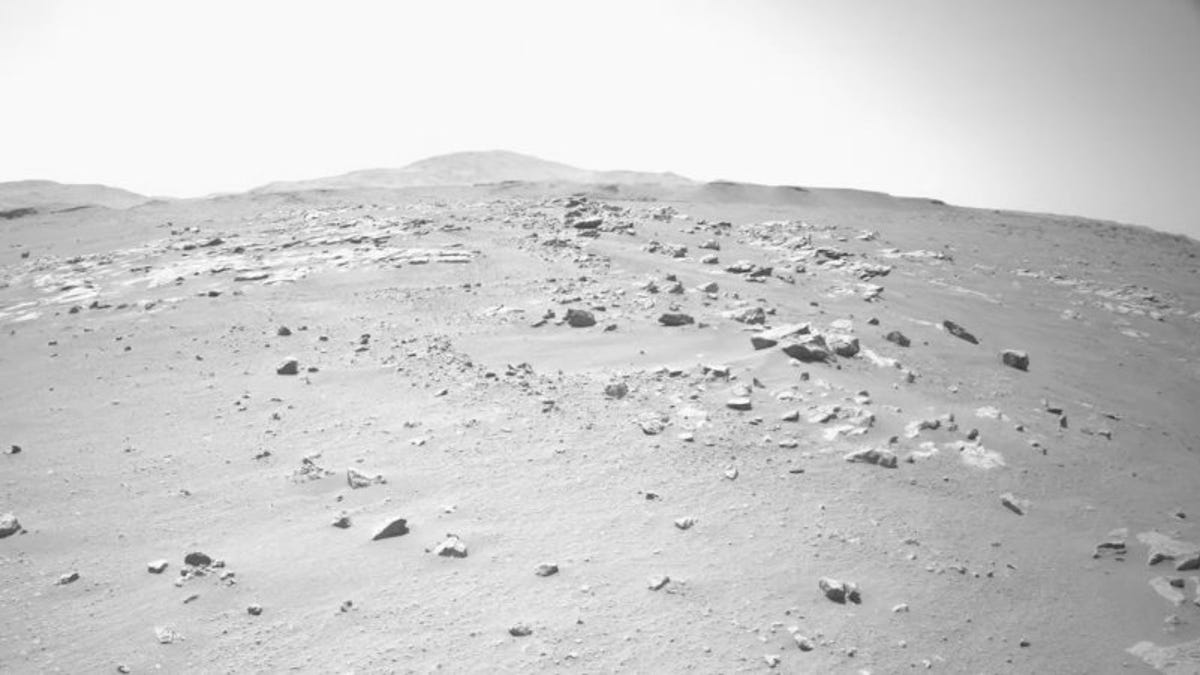Watch NASA's Perseverance rover zoom across Mars' rocky, alien landscape
Put yourself in Perseverance's shoes (wheels?) and roll along Jezero Crater.
The rovers are back, Mars fans! After going quiet for a few weeks due to the Mars solar conjunction, NASA's red planet explorers are warming up to continue their missions. To celebrate, NASA released a Perseverance rover point-of-view video showing the wheeled vehicle going for a spin across Mars.
"Solar conjunction is over and I'm ready to get rolling again. Nothing like the feel of Mars under your wheels," the Perseverance team tweeted on Tuesday.
The video is nifty for the perspective and the fabulous views of Mars, but it's also special for what it shows us about how the rover gets around. NASA's latest and fanciest rover is equipped with an auto-navigation system called AutoNav. The footage covers a 548-foot (167-meter) drive that took place on Sept. 12.
"AutoNav allows the rover to autonomously re-plan its route around rocks or other obstacles on its way to a pre-established destination," NASA said in a statement. That means Perseverance can cover a lot of ground fairly quickly without needing humans back on Earth to guide its every move.
The video has been sped up about 200 times. It might seem like Perseverance has the zoomies and is ripping across the rocky Martian landscape, but the rover is actually being very careful.
After Perseverance spent most of October on hiatus, we can now expect the pipeline of Mars images and science results to reopen. Perseverance has a busy schedule as it continues its mission to snag and pack samples and search for signs of ancient microbial life. And it has incredible sights to show us along the way.


